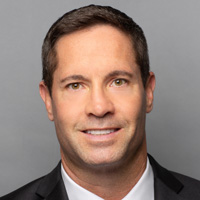The 60/40 Portfolio Is Dead. Long Live 33/33/33.
A portfolio of stocks and bonds used to be the gold standard, but it just doesn’t cut it anymore. It’s time to throw some alternative investments into the mix.


Profit and prosper with the best of Kiplinger's advice on investing, taxes, retirement, personal finance and much more. Delivered daily. Enter your email in the box and click Sign Me Up.
You are now subscribed
Your newsletter sign-up was successful
Want to add more newsletters?

Delivered daily
Kiplinger Today
Profit and prosper with the best of Kiplinger's advice on investing, taxes, retirement, personal finance and much more delivered daily. Smart money moves start here.

Sent five days a week
Kiplinger A Step Ahead
Get practical help to make better financial decisions in your everyday life, from spending to savings on top deals.

Delivered daily
Kiplinger Closing Bell
Get today's biggest financial and investing headlines delivered to your inbox every day the U.S. stock market is open.

Sent twice a week
Kiplinger Adviser Intel
Financial pros across the country share best practices and fresh tactics to preserve and grow your wealth.

Delivered weekly
Kiplinger Tax Tips
Trim your federal and state tax bills with practical tax-planning and tax-cutting strategies.

Sent twice a week
Kiplinger Retirement Tips
Your twice-a-week guide to planning and enjoying a financially secure and richly rewarding retirement

Sent bimonthly.
Kiplinger Adviser Angle
Insights for advisers, wealth managers and other financial professionals.

Sent twice a week
Kiplinger Investing Weekly
Your twice-a-week roundup of promising stocks, funds, companies and industries you should consider, ones you should avoid, and why.

Sent weekly for six weeks
Kiplinger Invest for Retirement
Your step-by-step six-part series on how to invest for retirement, from devising a successful strategy to exactly which investments to choose.
I’ve read countless articles from fellow financial advisers and investment gurus arguing for and against the traditional 60/40 (stock/bond) portfolio allocation. While many advisers have been trained to regard the 60/40 as a benchmark from the early days of their careers, a low interest rate environment means we need to get more creative.
We are living in a new world. The 60/40 was introduced nearly 70 years ago. Times have changed. In case there is any question about where I stand, put me down as firmly on the side of those who are ready to retire that strategy for good.
The new benchmark is 33/33/33; with your assets divided equally between stocks, bonds and alternatives.
From just $107.88 $24.99 for Kiplinger Personal Finance
Become a smarter, better informed investor. Subscribe from just $107.88 $24.99, plus get up to 4 Special Issues

Sign up for Kiplinger’s Free Newsletters
Profit and prosper with the best of expert advice on investing, taxes, retirement, personal finance and more - straight to your e-mail.
Profit and prosper with the best of expert advice - straight to your e-mail.
Why is the 60/40 stock and bond portfolio outdated?
It has been covered broadly in the media that stock valuations have become untenable. Inflation is at its highest level in 30 years and rates are expected to gradually increase in the years ahead. Mix those ingredients together and you’d be hard-pressed to find an analyst predicting the kind of returns we’ve seen in the public markets over the past decade.
So, what’s the fix? This is where illiquid assets (alternative investments) — such as venture capital, real estate, private equity and private debt — need to enter the chat. Alternative asset classes provide the benefit of diversification (which is why many investors remain in fixed income) along with a low correlation to stocks. With everyone looking for an inflation hedge ... you are welcome.
Research in J.P. Morgan Asset Management’s “Guide to Alternatives” revealed that allocating just 30% to alternatives in your portfolio can substantially increase your annual returns, while simultaneously strengthening portfolio stability and decreasing risk.
Keep in mind that investment in these assets must be done in conjunction with cash-flow planning. As illiquid assets can’t be quickly sold, or liquidated, they may not be for everyone. But for high-net-worth and affluent investors who don’t need cash in the short-term and are willing take on some temporary illiquidity, alternative investments make sense. Private markets are simply more attractive than stocks. Beyond generating returns, these alternatives also provide greater opportunity for building generational wealth.
Practical examples
Let’s take real estate for example. Real estate can serve as a supplement to fixed income as a vehicle to improve yield for investors with a lower risk tolerance, while providing a hard asset that presents an opportunity for real income. At Manhattan West, we invest through a fund model and focus on mainly multi-family and industrial, but more broadly, there are several REITs that can be purchased to gain similar exposure to real estate.
And then there’s venture capital and private equity, which may be a better fit for an investor who is comfortable taking on more risk and isn’t looking for investment income right away. Allocating a small portion of a portfolio to an early-stage venture capital opportunity makes sense if time is on your side. It may provide a potential for more growth than stocks, especially as companies are staying private for longer and going public at higher valuations. We tend to invest in both early stage as well as late stage (pre-IPO) companies. It’s important that you invest through a financial adviser who has access to an experienced team connected to investment opportunities in both private equity and venture capital. Information about private investing companies is not typically available for public consumption. With the help of your financial adviser, you can determine, on a case-by-case basis, whether a private equity or venture capital investment is right for you.
An alternative investment strategy works best when personalized to the needs of the individual. There is no one-size-fits-all approach to investing, and that includes alternatives. Any financial adviser worth their salt will customize your portfolio with your risk tolerance and time horizon top of mind.
So why isn’t my financial adviser offering alternatives?
Scale. Financial advisers often choose to pile their clients into liquid model portfolios because it’s easier for them to scale without having to truly customize based on each individual client's needs. There is an alarming trend bubbling in the wealth management industry in which firms try to gather as many assets as possible – put the investment side on auto-pilot – so they can spend their time and attention on growth or a sale.
Whether these advisers have deprioritized efforts to include alternative assets in customized portfolios due to a traditional – and frankly outdated – approach to allocation, or out of selfishness, is beside the point. Your portfolio should be tailored to your aspirations and goals, and it may be time to start challenging your financial counsel, asking some tough questions.
Embrace 33/33/33 as the new benchmark. Because Modern Portfolio Theory doesn’t feel so modern anymore, does it?
Profit and prosper with the best of Kiplinger's advice on investing, taxes, retirement, personal finance and much more. Delivered daily. Enter your email in the box and click Sign Me Up.

Tyler Robuck is a managing director–financial adviser at Manhattan West, where he provides tailored wealth management solutions to high-net-worth clients, entertainers and small-business owners. He brings a wealth of experience, knowledge, energy and compassion to help clients achieve their goals. Having worked through myriad market cycles, he prides himself on being a clear and steady voice in periods of growth and volatility. Outside work, Robuck enjoys meditation and is a yogi.
-
 Quiz: Do You Know How to Avoid the "Medigap Trap?"
Quiz: Do You Know How to Avoid the "Medigap Trap?"Quiz Test your basic knowledge of the "Medigap Trap" in our quick quiz.
-
 5 Top Tax-Efficient Mutual Funds for Smarter Investing
5 Top Tax-Efficient Mutual Funds for Smarter InvestingMutual funds are many things, but "tax-friendly" usually isn't one of them. These are the exceptions.
-
 AI Sparks Existential Crisis for Software Stocks
AI Sparks Existential Crisis for Software StocksThe Kiplinger Letter Fears that SaaS subscription software could be rendered obsolete by artificial intelligence make investors jittery.
-
 Social Security Break-Even Math Is Helpful, But Don't Let It Dictate When You'll File
Social Security Break-Even Math Is Helpful, But Don't Let It Dictate When You'll FileYour Social Security break-even age tells you how long you'd need to live for delaying to pay off, but shouldn't be the sole basis for deciding when to claim.
-
 I'm an Opportunity Zone Pro: This Is How to Deliver Roth-Like Tax-Free Growth (Without Contribution Limits)
I'm an Opportunity Zone Pro: This Is How to Deliver Roth-Like Tax-Free Growth (Without Contribution Limits)Investors who combine Roth IRAs, the gold standard of tax-free savings, with qualified opportunity funds could enjoy decades of tax-free growth.
-
 One of the Most Powerful Wealth-Building Moves a Woman Can Make: A Midcareer Pivot
One of the Most Powerful Wealth-Building Moves a Woman Can Make: A Midcareer PivotIf it feels like you can't sustain what you're doing for the next 20 years, it's time for an honest look at what's draining you and what energizes you.
-
 I'm a Wealth Adviser Obsessed With Mahjong: Here Are 8 Ways It Can Teach Us How to Manage Our Money
I'm a Wealth Adviser Obsessed With Mahjong: Here Are 8 Ways It Can Teach Us How to Manage Our MoneyThis increasingly popular Chinese game can teach us not only how to help manage our money but also how important it is to connect with other people.
-
 Looking for a Financial Book That Won't Put Your Young Adult to Sleep? This One Makes 'Cents'
Looking for a Financial Book That Won't Put Your Young Adult to Sleep? This One Makes 'Cents'"Wealth Your Way" by Cosmo DeStefano offers a highly accessible guide for young adults and their parents on building wealth through simple, consistent habits.
-
 Global Uncertainty Has Investors Running Scared: This Is How Advisers Can Reassure Them
Global Uncertainty Has Investors Running Scared: This Is How Advisers Can Reassure ThemHow can advisers reassure clients nervous about their plans in an increasingly complex and rapidly changing world? This conversational framework provides the key.
-
 I'm a Real Estate Investing Pro: This Is How to Use 1031 Exchanges to Scale Up Your Real Estate Empire
I'm a Real Estate Investing Pro: This Is How to Use 1031 Exchanges to Scale Up Your Real Estate EmpireSmall rental properties can be excellent investments, but you can use 1031 exchanges to transition to commercial real estate for bigger wealth-building.
-
 The 8 Stages of Retirement: An Expert Guide to Confidence, Flexibility and Fulfillment, From a Financial Planner
The 8 Stages of Retirement: An Expert Guide to Confidence, Flexibility and Fulfillment, From a Financial PlannerRetirement planning is less about hitting a "magic number" and more about an intentional journey — from understanding your relationship with money to preparing for your final legacy.